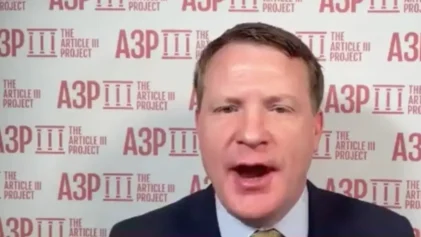A group of Buckhead residents say they’ve had enough with Atlanta and want to form its own city. The Buckhead City Committee, the group leading the effort to secede from the City of Atlanta, claim they are not getting enough bang for their buck in the form of city services. They also believe crime is out of control and feel they can do a better job at keeping Buckhead safe.
Sonya Russell-Ofchus, who’s running for Atlanta City Council Post 2 at-large, has lived in Buckhead for nine years. She feels splitting off from the City of Atlanta won’t solve the problems the Buckhead City Committee wants addressed.
“When you take Buckhead away from Atlanta, you’re starting a new bureaucracy, big government, I mean more government. It just makes no sense to me. It just makes no sense, you’ve got to start over, your police, fire, waste management, building a new city hall. Instead of doing that, why not add to what we have,” said Ofchus.
Atlanta Black Star requested an on-camera interview with the leadership of the Buckhead City Committee. While they declined to speak on-camera, CEO Bill White did answer some of our questions.
White says 60-percent of Buckhead residents supports forming their own city.
White says police, parks and roads are being neglected by Atlanta city officials. He also cited crime as a major problem impacting Buckhead disproportionately.
Atlanta Police tells ABS, so far this year, the Buckhead area has averaged 12,000 to 15,000 calls for service a month.
Crime data indicates murders, rapes, robberies, aggravated assaults, larceny, and auto thefts are all up compared to last year.
White believes Buckhead forming its own police department will reduce crime. But this is another key argument Russell-Ofchus takes issue with.
Russell-Ofchus has spent 10 years as an Atlanta police officer and worked for 15 years as a federal agent.
“Crime is going to be wherever you are. You just can’t say, I’m going to do a new city, and there will be no crime. Yeah, the mall is and will still be in Buckhead, Phipps will still be in Buckhead, Lenox will still be in Buckhead, there will still be crime. To me, that’s not the answer.”
We asked White what the impact of Buckhead will be leaving Atlanta’s tax base and he disputes reports that it would be all negative.
White says, “Many incorrectly assume that because Buckhead accounts for 40% of the assessed value of the city of Atlanta’s property, the formation of Buckhead city would remove 40% of Atlanta’s operating revenue. It will not,” said White.
Russell-Ofchus disputes the claim saying the cost of forming a new city will ultimately fall on Buckhead residents.
“I don’t know what he sees, but 40% of the taxes coming into the city, comes from Buckhead, I know that because I’m paying my fair share,” said Russell-Ofchus.
Atlanta Black Star requested information from the city on what such an impact will do to its operating budget, so far, we have not received that data.
“Let’s be honest, this is about race,” said Richard Rose, Atlanta NAACP President.
Buckhead is currently 77% white and 11% Black. Rose believes the push to split Buckhead off from Atlanta has less to do with city services and crime and more to do with the race of Atlanta’s leaders.
“They don’t say because you have a Black mayor, but that’s the bottom line, some of them don’t like the Black leadership,” said Rose.
In April of this year, House Bill 854, legislation supporting Buckhead city was introduced by State Representative, Todd Jones and State Senator, Brandon Beach.
Once a feasibility study is completed, and if the bill makes it through the state house and senate, and signed by the governor, Buckhead residents can cast a vote on Buckhead city in the November 2022 election.
“Buckhead does not have a major crime problem. There have been a few incidents, but there’s no major crime problem there at all. So, what’s fueling this? I’d totally agree, it’s taxes, money and race to break away from a majority Black city,” said Dr. Ronald Baylor, Professor emeritus, Georgia Tech.
Dr. Baylor is a historian who specializes in urban, ethnic and immigration history. He’s also the author of “Race and the Shaping of Twentieth-Century Atlanta”. Dr. Baylor says Atlanta has a history of municipalities attempting to break away with race being a leading motivation in their decision-making.
“Back in the 60s when Sandy Springs was fighting, they said it was all about taxes and service delivery. That’s the same thing Buckhead is saying, and I think a lot of it is for the same reason. They basically want to break off for what they see as a city that’s had a lot of troubles, their money going to other parts of the city where there’s more trouble and they want to break away from that trouble,” said Dr. Baylor.
Other cities who recently formed their own government within the Atlanta metro area include, Sandy Springs, Georgia incorporated in 2005. Milton, Georgia and Johns Creek, Georgia both incorporated in 2006. Brookhaven, Georgia incorporated in 2012 and Stonecrest, Georgia incorporated in 2016.
Russell-Ofchus is unsure if the legislation to make Buckhead into its own incorporated city will make it on the ballot next year, but she is certain arbitrary boundaries will not solve ongoing issues.
“You can run, but you can’t hide. If that’s where it’s happening at Lenox Square, Phipps, this is where it’s happening, people will gravitate to that location,” said Russell-Ofchus.


